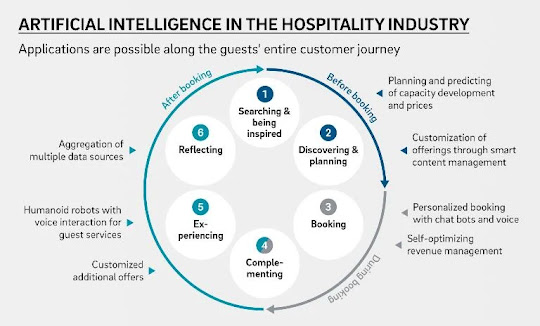As we all know and agree, education is not just about imparting knowledge; it's also about how that knowledge is structured, delivered, and managed. Effective education management plays a pivotal role in shaping student achievement and success. From planning the curriculum to classroom organization and much more, the management of educational institutions significantly influences the outcomes of students. Let us now explore the various ways in which education management impacts student achievement and sets the stage for their overall success.
It all
starts with the ‘curriculum development and alignment’, which is the
foundation of a successful education system. Education managers are
responsible for designing a curriculum that is engaging, relevant, and aligned
with learning objectives. A well-structured curriculum ensures that students
receive a balanced education, covering essential topics while catering to their
diverse learning styles. When a curriculum is thoughtfully managed, it fosters
a deeper understanding of subjects and encourages critical thinking among
students.
Planning requires
‘effective instructional strategies’ to succeed. Education managers play a role in selecting
and implementing instructional strategies that suit both the subject matter and
the students' needs. The management team must encourage teachers to employ a
variety of teaching methods, such as interactive discussions, hands-on
activities, and multimedia resources. By doing so, students with different
learning preferences can grasp concepts more effectively, leading to improved achievement.
It’s equally important to ensure an optimal classroom organization
and environment for the best results since the physical and
psychological environment of a classroom significantly influences learning
outcomes. Education managers need to create an environment that is conducive to
learning, including suitable seating arrangements, effective use of technology,
and visual aids. A well-organized classroom minimizes distractions, promotes
engagement, and enhances students' overall focus and performance.
Resource allocation and support is necessary for success. Education managers
are responsible for allocating resources, including teaching materials,
technology, and personnel, in a planned manner. When students and teachers have
access to the necessary tools and support, it enhances the quality of
education. Adequate resources contribute to a dynamic learning experience,
enabling students to explore, experiment, and excel in their studies.
The Professional
Development for Educators is crucial in today’s complex learning environment. Well-trained
educators are better equipped to employ innovative teaching methods, adapt to
evolving educational trends, and address the diverse needs of their students. Investing
in the professional development of teachers is a critical aspect of education
management. Education managers should facilitate workshops, training sessions,
and collaboration opportunities to ensure that teachers stay updated and
continually enhance their teaching skills.
Education
management also involves designing ‘effective assessment’ strategies.
Assessments should measure not only the retention of information but also
critical thinking, problem-solving, and creativity. A balanced assessment
approach, including formative and summative assessments, provides valuable
insights into students' progress and enables educators to tailor their
instruction accordingly.
Success
is difficult without Parent and Community Engagement. Successful
education management involves fostering strong connections with parents and the
community. When parents are engaged in their child's education, it creates a
supportive learning environment. By organizing parent-teacher conferences,
workshops, and events that promote open communication and collaboration between
educators and families, the students benefit more rapidly and in open
collaborative surroundings.
Education
is not static; it evolves with changes in society and advancements in
technology. Effective education management involves the ability to adapt
curricula, teaching methods, and resources to address these rapid changes. By
staying flexible and forward-thinking, education managers ensure that students
are equipped with skills that are relevant in the ever-changing world.
We have to acknowledge that education
management plays a fundamental role in shaping the trajectory of students'
achievement and success. From designing a comprehensive curriculum to fostering
an engaging classroom environment, each aspect of management influences how
students learn, grow, and excel. By investing in education management that
prioritizes effective strategies, resources, and support systems, educational
institutions lay the groundwork for students to achieve their full potential
and become successful contributors to society.
For more information
on how our team can assist you in achieving a higher output within your current
resources, do contact us.
“We
aspire to make the difference”....











